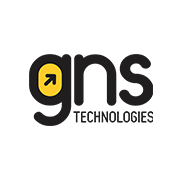Business decisions can be made more wisely when they are based on detailed data, which is the currency of business. Tableau, which permits interactive, data-based representations, is one of the top tools for understanding data in a corporate context. The need for Tableau specialists is increasing along with adopting data-centric business processes. And it’s crucial to ace those tough tableau interview questions if you want to work in one of these complex areas.
You will discover in this article several Tableau interview questions (and responses) that you can come across when applying for jobs that use the software. Practicing these Tableau questions for the interview can enable you to ace it in a single sitting.
Tableau Interview Questions to Look Out For
Having a proper preparation strategy can help you reduce the stress and uncertainty of how the interview shall go. But for now, let us now look at some critical Tableau questions that an interviewer can ask.
- Define Tableau
With Tableau, anyone can connect to their data and build dynamic, shareable dashboards that are visualized and created. While powerful enough to handle even the most challenging analytical problems, it is simple enough for any Excel user to pick up. Sharing the results securely with others using Tableau merely needs a few seconds.
- Explain the Difference between Tableau and other BI tools.
This is yet another typical Tableau interview question.
While Tableau has the most robust visual analytic capabilities available, it does not assist with data foundation or plumbing. As an illustration, one can acquire the whole package by combining SQL Server and Tableau. If one wants to scale, purchasing Tableau licenses is rather expensive.
Traditional BI (Business Intelligence) systems can handle all of this at the expense of high consultancy fees, high up-front costs, and expensive gear and software. Only Microsoft can offer an acceptable value offering compared to the other mega-vendors. There is currently not a large enough talent pool for open-source companies like Pentaho and Jaspersoft.
- Define Tableau Server
For new Tableau users, this is a typical fundamental question.
Anyone can utilize Tableau Server, a mobile and browser-based analytics platform. Tableau Desktop makes it simple to publish dashboards and distribute them via Tableau Server. It’s simple to set up and even simpler to operate.
- Explain data visualization in Tableau
By encoding data or information as visible objects, such as points, lines, or bars, and placing them within graphics, data visualization refers to the strategies used to convey such data or information.
- The five main products that Tableau offers
The complete cycle of self-service analytics, including preparation, analysis, sharing, and so forth, is supported by Tableau’s products and governance and data management at each stage. The Tableau platform incorporates everything. Tableau’s main products are Tableau Server, Tableau Online, Tableau Desktop, Tableau Public, and Tableau Reader.
- Explain the role of Tableau
This is another often requested question that will assist you in preparing for your Tableau interview.
The main objective of Tableau is to aid in the visualization and comprehension of data. With the help of its software solutions, many corporate users can now interact with their data, ask questions, find answers to issues, and create value.
- Explain the difference between Context Filter and other filters.
- Each time a context filter is created, Tableau creates a temporary table for that specific filter set, and any subsequent filters—like cascade parameters—are applied to the context filter data.
- If the USA and India are the subjects of a context filter, Tableau will generate a temporary table containing the data for these two nations. Each record will be checked for all filters, and if one does not have the Context Filter but does have other filters, those will be applied to the data for these two countries.
- Explain the disadvantages of the Context Filter
- Users don’t typically alter the context filter, but if they do, the database must be recomputed, and the temporary table must be updated.
- When a dimension is set to context, Tableau generates a temporary table that needs to be refreshed each time the view is launched. The temporary table is in Access table format and can be used with Excel, Access, and text data sources. It cannot be created on a server without permission for SQL Server, MySQL, and Oracle data sources. They are not produced for cubes or sources of multidimensional data. The Context Filter specifies the Dependent and Independent Filters.
- Explain Sets and Groups
Sets are special fields that specify a data subset depending on specific criteria. The criteria could be a calculated condition, such as a list of clients with sales above a predetermined threshold. Computed sets are updated as the data changes. In contrast, a set may also be founded on a particular data point in the observer’s opinion.
Each higher-level category in a dimension is made up of several members, which together form a group. One can combine particular majors for main categories, for example, if one deals with a view that displays average test scores by major.
Final Words
We have reached the concluding stage of the article. To summarize our discussion, we have looked into some of the most important Tableau questions which you can be asked in an interview. Some of them include explaining Tableau, its products, its roles, and definition of sets and groups.
If you have a knack for Tableau and wish to go ahead with a career path that actively involves Tableau and also pays you well, data science is the domain you probably might be looking for. Speaking of data science, you might require guidance and support, and Skillslash is country-wide famous for its Data Science course in Noida with placement guarantee where you will not only receive world-class training from the best mentors but also be placed with great companies at a great package. Skillslash also offers Full Stack Developer Course In Hyderabad. To know more, Get in Touch with the support team.



